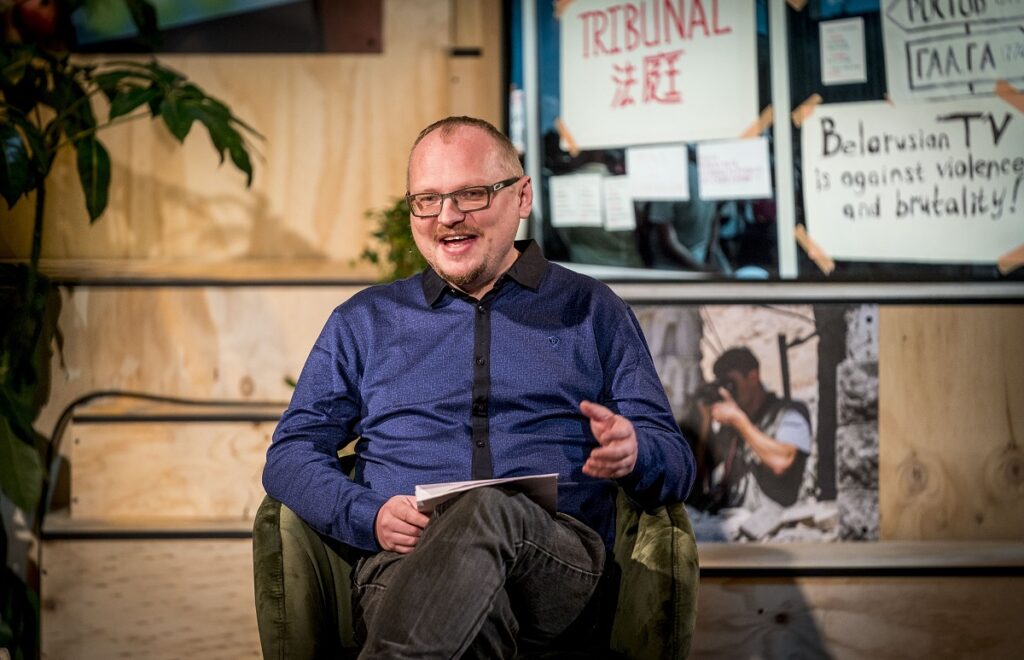The story of Andrei Kureichyk is a good reflection of the story of Belarus itself. The playwright turned political activist, who has been in exile since 2020, believes that the idea of an independent and free Belarus cannot be abandoned. His most recent project, Voices of the New Belarus, serve as testimony to this belief.
Once or twice a week, throughout April and May 2023, the Belarusian playwright, filmmaker and political activist Andrei Kureichyk walked down several flights of creaky stairs into the dusty basement of a building in New Haven, Connecticut. The basement, belonging to Yale University’s School of Drama, had been converted a number of years earlier into a recording studio, and Kureichyk was joined by an audio engineer in training as well as a different voice actor each visit. Some were student or professional actors; some were intellectuals or professors. They had been recruited for Kureichyk’s project Voices of the New Belarus, a multimedia adaption of his play of the same title.
February 7, 2024 -
Daniel Edison



































